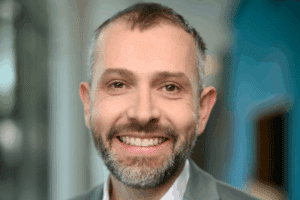Access to gynecological care remains a major public health issue. Julie Salomon, Medical Director at Qare, reacts to the results of the barometer on “women’s renunciation of gynecological care”, carried out by the Ifop Group’s Omnibus expertise.
Question 1: The results of the survey reveal a worrying reality: one woman in two has already given up or postponed gynecological care, because of delays, inconvenience, financial constraints or geographical distance. This observation is in line with your e-health commitments. How does Qare address this issue?
As a doctor, I’m particularly concerned by these results: one woman in two will still be refusing gynecological care in 2025. What’s even more worrying is that 70% of these refusals concern check-ups and screenings, which are essential appointments for women’s health. While there has been a slight overall improvement, the situation remains alarming. Women face multiple obstacles to accessing healthcare, some of which have become even more pronounced since 2021. These are precisely the issues that have motivated Qare’s commitment to women’s health since its inception.
Question 2: Teleconsultation is on the rise, particularly among young, urban women, especially for one-off procedures such as prescription renewals or interpretation of results. What lessons do you draw from this, and how does it guide the development of your remote gynecological services?
The 61% of young women under the age of 35 who put off their gynecological consultations are the ones I’m most interested in. The main reasons identified are: long waiting times, time constraints and access problems. But there are also positive signs: a third of women now use teleconsultation (+4 points since 2021), especially for specific needs such as renewing a prescription or reviewing an examination. These consultations are an opportunity to reach women who would otherwise forego care in favor of those around them, especially young, active women.
Question 3: How will these results feed into your strategic thinking, particularly in terms of strengthening access to gynecological care?
“These figures clearly show us where we need to act. When 32% of women don’t know where to turn, it’s a real wake-up call. Similarly, the fact that 57% of women who have never teleconsulted are ready to do so for their gynecological follow-up is a real wake-up call. Qare organizes its offer to cover as many situations as possible, with general practitioners, gynecologists and midwives, who are invaluable for these specific women’s health requests. When we see that 80% of users naturally include these remote consultations in their follow-up care, we understand that this complementarity with face-to-face care meets a real need.
As the leader in teleconsultation, with 7 million teleconsultations carried out and 2,000 doctors involved, our responsibility is very clear: to constantly innovate in order to remove these obstacles to access to healthcare. Women’s health deserves this constant mobilization.”



